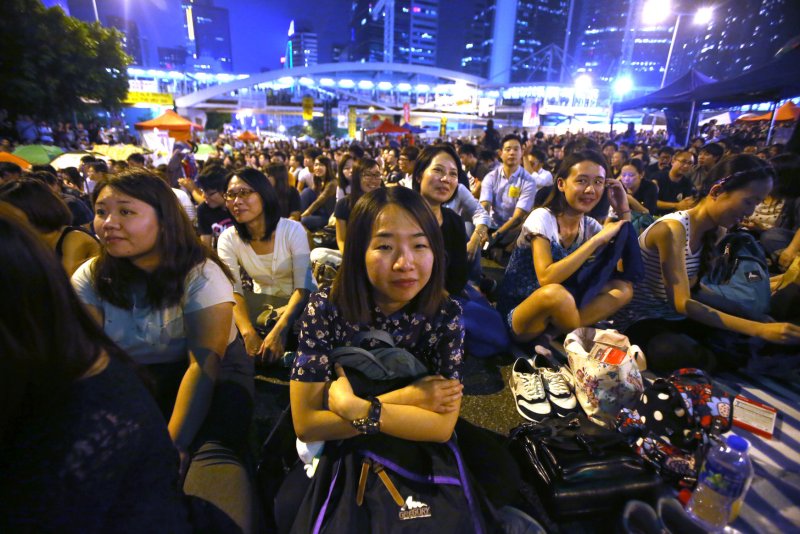Pro-democracy activists protest outside government headquarters in downtown Hong Kong in 2014. Monday, the government banned the Hong Kong National Party for its threats of violent revolution, officials said. File Photo by Stephen Shaver/UPI |
License Photo
Sept. 24 (UPI) -- The Hong Kong government on Monday banned a pro-independence political party that had called for a violent revolution, saying the group incites discrimination.
Hong Kong Security Secretary John Lee Ka-chiu said the National Party's calls for violence can't merely be treated as a "political slogan." Anyone who serves the party or contributes money to it could be fined or jailed, officials said.
The move marks the first time Hong Kong has banned a political party since China was returned control of the country from Britain in 1997. Residents enjoy more freedoms than do those on the mainland, but China has cracked down on political dissent -- especially calls for independence.
Lee said the party spreads hate and discrimination against mainland Chinese citizens.
"[The party] advocated negativity and hostility against Chinese people, making Chinese people vanish from Hong Kong, and making Hong Kong a city without Chinese people that would separate from China forever," Lee said. "I cannot just treat such matters as political slogans and neglect their threats posed to public safety and order."
HKNP leader Andy Chan said he was waiting for legal advice before commenting on the ban.
Maya Wang, a senior China researcher for Human Rights Watch, said the ban is an assault on Hong Kong's freedoms.
"The ban violates a range of human rights guaranteed to Hong Kong people, including the rights to freedom of association and assembly," Wang said.
"This incident opens the door to use national security to justify further limitation on Hong Kong people's rights, including freedom of expression, indirectly," said law professor Benny Tai.
Lee acknowledged that while the HKNP had called for armed revolution, the group had not resorted to violence. The party did take part in the Legislative Council election two years ago and made plans to infiltrate the schools and recruit more members.















